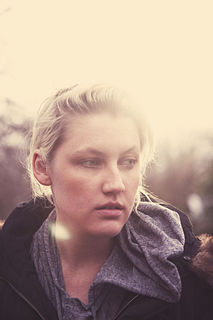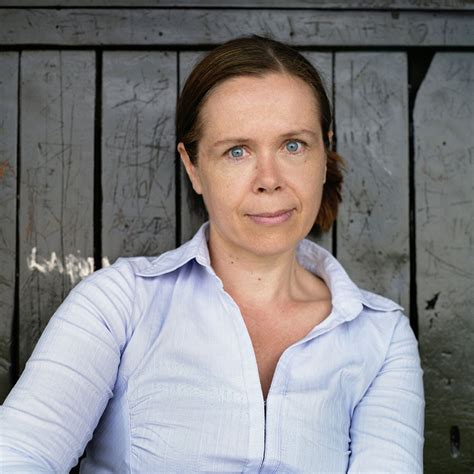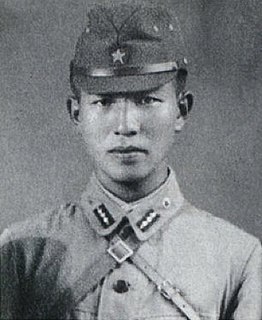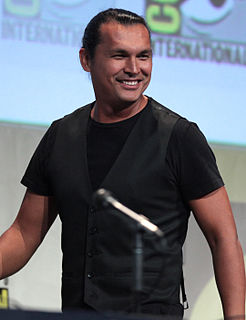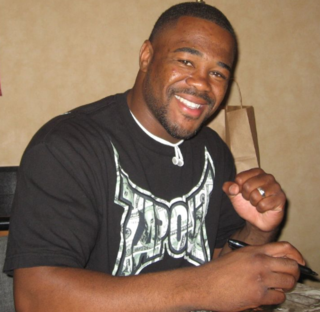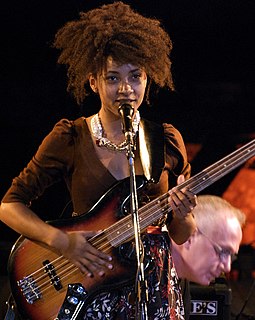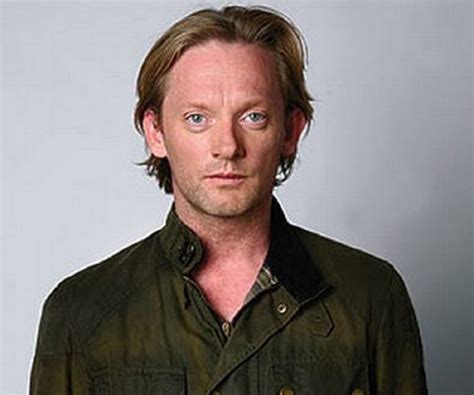A Quote by Gina Prince-Bythewood
My parents are amazing. When I said I wanted to go into film, they didn't understand it, but they were incredibly supportive. But growing up, I absolutely did have that feeling of, "Wow, somebody just gave me up." That was infused in The Secret Life of Bees too - the protagonist wanting unconditional love from her dead but much-imagined mother.
Related Quotes
I guess I wanted to emulate the artists that my parents were listening to when I was growing up. I've always had this affinity for folk music, and music in general, for as long as I can remember. So as soon as I could start playing shows, I did. And my parents were really supportive of me the entire time.
Dad, you played rounders with me, even though you hated it and wished I'd take up cricket. You learned how to keep a stamp collecion because I wanted to know. For hours you sat in hospitals and never, not once, complained. You brushed my hair like a mother should. You gave up work for me, friends for me, four years of your life for me. You never moaned. Hardly ever. You let me have Adam. You let me have my list. I was outrageous. Wanting, wanting so much. And you never said, 'That's enough. Stop now.
I'm fortunate to have an amazing, strong mother who is so supportive of everything me and my sisters did growing up - but she was someone who never forced us to go swim or to go do this or that. She helped us think about certain consequences when we needed to, but we made our own decisions. I think if I were forced to swim, I wouldn't have stayed in the pool as long as I did.
Normal people, fear the day their parents die. Screwed up people, fear the day their parents kill. My mum killed a guy, at my wedding. So I can pretty much check that off. But, she's my mum. And no matter what she did I just can't walk away from her. She gave me birth. She gave me love. She gave me the ability to make a cigarette fire look like it was started by the hot water heater.
Like tens of millions of Americans, my parents were immigrants. They were poor and did not speak English well. They went to flea markets and sold gifts to make ends meet. Eventually, through hard work, they opened six gift stores in shopping malls. My parents achieved the American dream; they went from being poor to a home and gave my brother and me an amazing education. I wanted to serve the country that gave so much to my family.
In my terms, I settled for the realities of life, and submitted to its necessities: if this, then that, and so the years passed. In Adrian's terms, I gave up on life, gave up on examining it, took it as it came. And so, for the first time, I began to feel a more general remorse - a feeling somewhere between self-pity and self-hatred - about my whole life. All of it. I had lost the friends of my youth. I had lost the love of my wife. I had abandoned the ambitions I had entertained. I had wanted life not to bother me too much, and had succeeded - and how pitiful that was.
"Death," said Akiva. His life was leaving him fast now that he no longer held his wound. His eyes just wanted to drift closed. "I'm ready." "Well, I'm not. I hear it's dull, being dead." She said it lightly, amused, and he peered up at her. Had she just made a joke? She smiled. Smiled. He did, too. Amazed, he felt it happening, as if her smile had triggered a reflex in him. "Dull sounds nice," he said, letting his eyes flutter closed. "Maybe I can catch up on my reading."
I'm a big proponent of open adoption, because it allows a relationship between the birth mother and her child so that the kid isn't like, "Where did I come from?" And to have it be like, "Look, you have a bunch of people who love you." Not just the parents who are raising you on a day-to-day basis, but also to have contact with your birth mother and hopefully your birth father. So that you can be like, "Oh, they love me too, and they love me so much that they knew they couldn't take care of me but they're still in my life to some extent."

